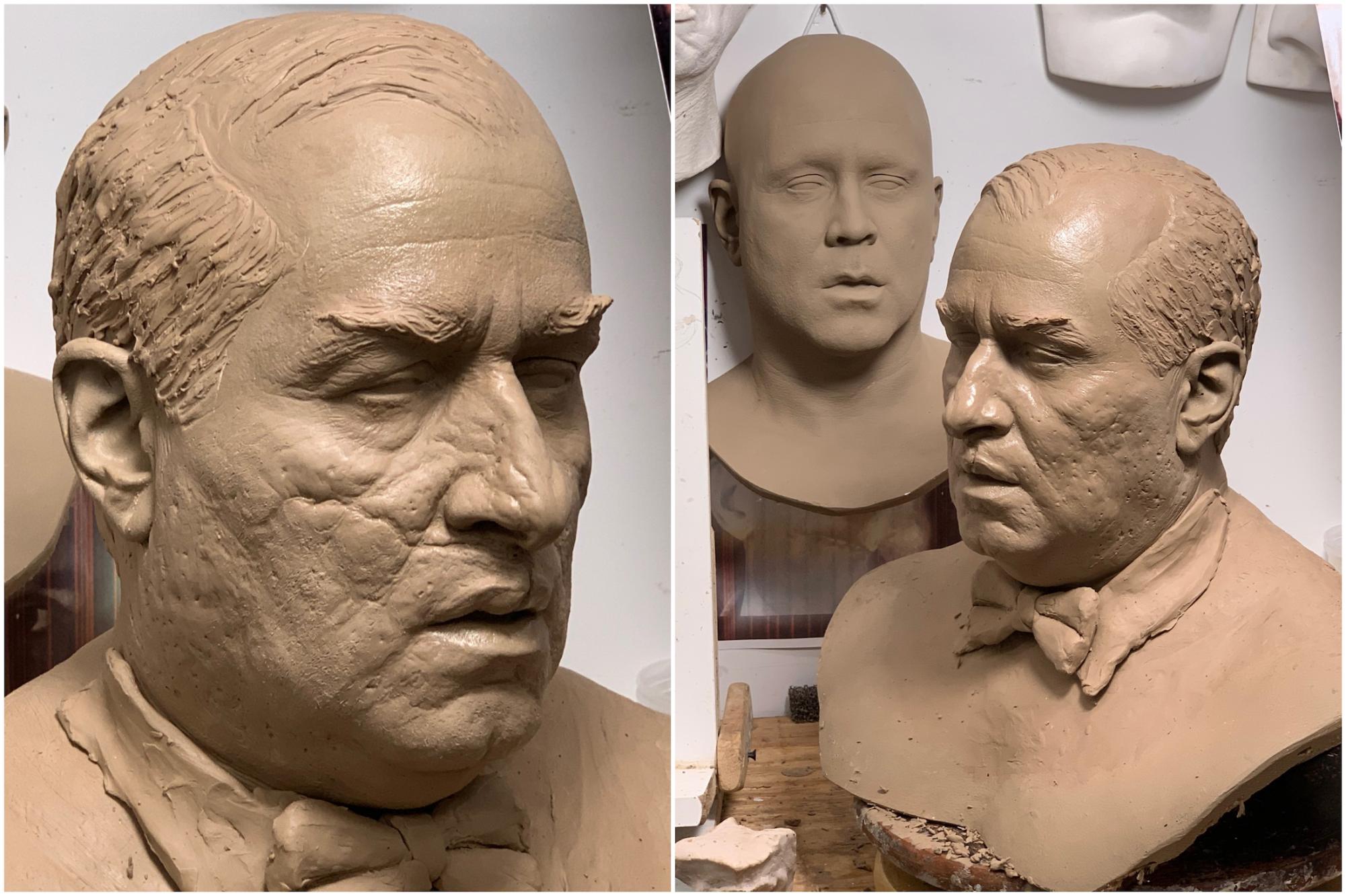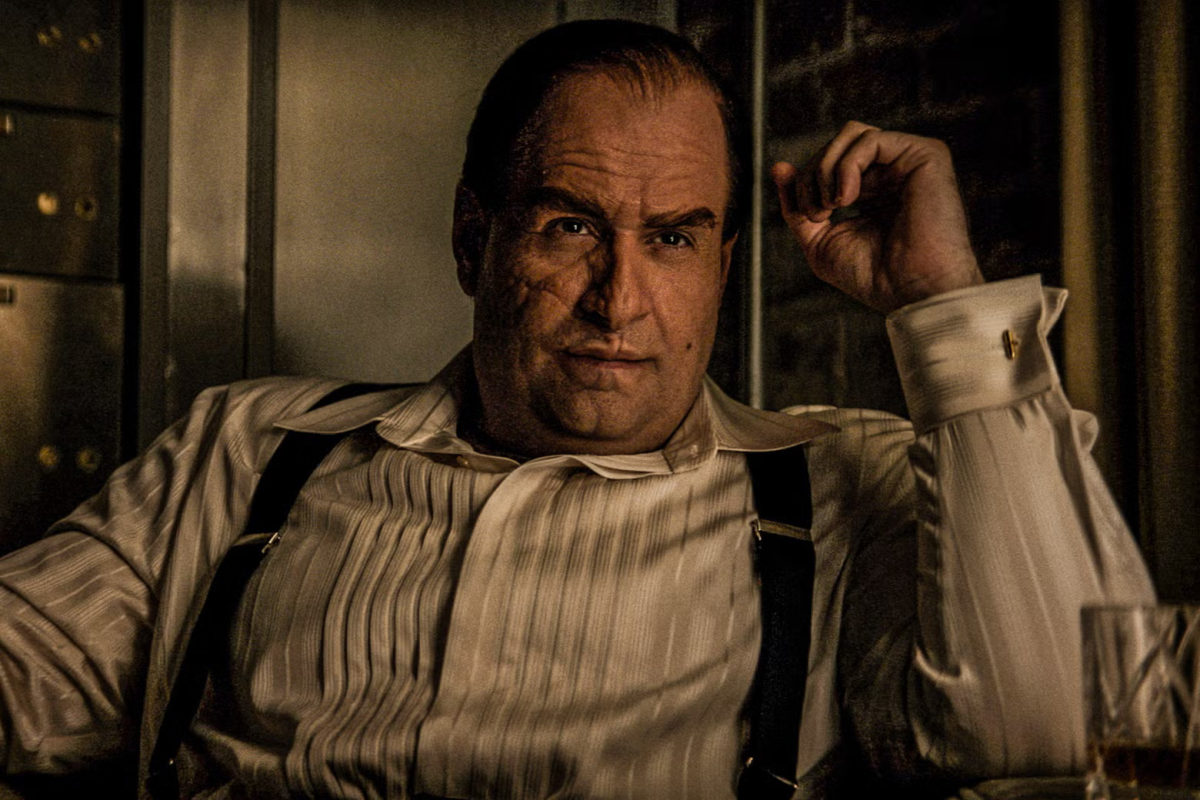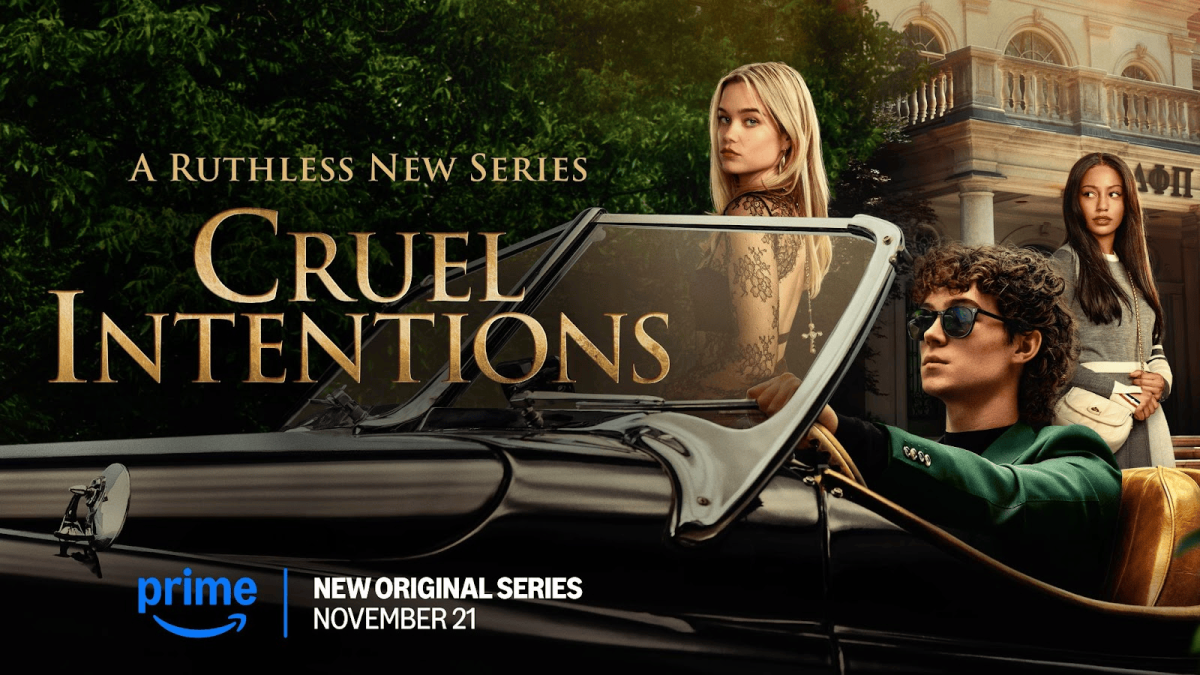For most people, when it comes to the Penguin, one of Batman’s classic villains, the image of Danny Devito in a neogothic Burton-style costume and white face paint would sooner come to mind than the idea of a gritty, tactical man who manipulates his way through the criminal underworld.
Matt Reeves’ “The Penguin” series seeks to reshape this image, and it does so with great success.
The series debuted on September 19 and was immediately subject to overwhelmingly positive reviews, with its first episode maintaining a 100% audience rating on Rotten Tomatoes. Since then, the show has aired weekly on Sunday nights at 9 p.m.
The Penguin, also known as Oswald Cobb, is the series’ titular sweet-talking mobster. He is played by Irish actor Colin Farrell, who has appeared in no shortage of notable roles, such as Danny Witwer in the iconic 2002 film “Minority Report” and more recently in 2022’s “The Banshees of Inisherin” for which he took home a Golden Globe Award for Best Actor.
Thanks to Farrell’s devotion to the role, “The Penguin” has already drummed up its own wave of award show buzz, with many fans and critics predicting the show will have great success at the upcoming Emmy Awards.

The series excels in the same way as 2022’s “The Batman,” its film predecessor. It establishes a dark, immersive noir atmosphere where every drop of grit and grime can be felt by the audience through meticulous cinematography, detailed sound design, tactical directing and realistic writing.
Even without a blockbuster movie budget, the show’s Gotham City rarely feels like New York City, where it was shot. The series envelops viewers in a setting they are likely familiar with, but does so in a way where it feels anything but familiar. It places Gotham’s most iconic trait in the forefront: mass, untameable corruption and constantly blurred lines between black and white. This environment serves as the perfect backdrop for a complex character like Oswald Cobb.
Cobb, or Oz as he is often referred to, is portrayed without the character’s traditional flamboyance. Farrell focuses on charisma and desperation, crafting a somehow believable presentation of a man who just barely overcomes each new issue through raw wit and luck. His place as the series’ protagonist naturally guides the audience to root for him, but the context of the story refuses to allow it, repeatedly reminding viewers that despite any relatable traits and empathetic remarks, Oz is not a hero.
“In the first episode, he (Oz) was pretty likable,” Farrell stated in an interview. “But I’d be surprised if you liked him by the end of the eighth [episode].”
This descent into greater darkness is shown most clearly by the inclusion of Oz’s supporting cast, most notably Sophia Falcone, the infamous serial killer known as The Hangman and heir to the Falcone crime family, and Victor Aguilar, lowlife streetrat and Oz’s newest gullible lacky.
Falcone is the closest thing this series has to an antagonist, other than Oz himself. Her story explores sensitive topics such as domestic violence, mental health and trauma with such bravery as to not only destigmatize the subjects but to also give them broad relatability and appeal. Still, she remains threatening due to an incredibly broken performance by Cristin Milioti and an ever-growing web of rivalries and alliances. She is the walking embodiment of Oz’s misdeeds, which actively prevents viewers from forgetting about them. Often, it is difficult not to root for her just as much as Oz.
Aguilar is an original character created for the series, but he has no lack of depth to show for it, even in comparison to the other characters who have grown and developed over decades of comic book appearances. A subtle performance by Rhenzy Feliz paints him as the show’s light and innocence, his own path reflecting what Oz’s may have once looked like. It is not a spoiler to say that nearly every fan of the show has come to agree on one thing: they will be surprised if he survives beyond this season.
The arcs of both characters, Aguilar and Falcone, are just as important as Oz’s himself. All build to establish a number of central themes and ideas. The series questions moral ambiguity and what it means to survive, as Oz repeatedly overcomes ridiculous odds through savage manipulation and betrayal and encourages one to empathize regardless
“The Penguin” gets the audience invested through an unpredictable story, complex characters and a chain of anarchic events, which will often leave viewers truly unsure of who to root for. Farrell’s portrayal of the iconic villain reshapes Oz into a relatable man of honor, charisma and manipulation, making this adaptation a worthy addition to Batman lore.
As the show continues to captivate audiences in its last two episodes, its craziest moments are almost surely still ahead of it. Beyond that, the show may have a lasting impact on not only its viewers but on the general landscape of superhero storytelling, hopefully encouraging more new approaches to familiar characters.
Regardless, “The Penguin” has waddled its way into the spotlight and is sure to be a strong contender at the upcoming Emmy Awards and a positive influence on narratives to come.














